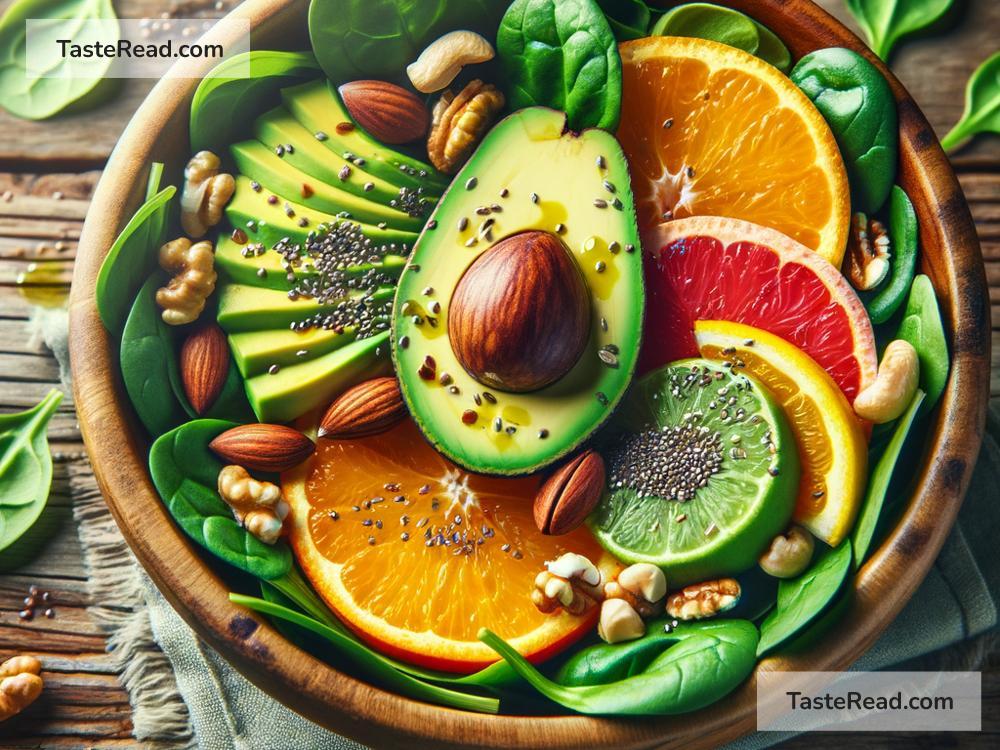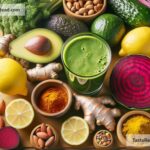Foods That Support Ligament Elasticity: Boost Your Joint Health Naturally
Ligaments are the tough, fibrous bands that connect our bones and keep our joints stable. They need to be both strong and elastic to allow proper movement without injury. Whether you’re an athlete, recovering from an injury, or simply want to avoid joint issues as you age, eating the right foods can play a major role in keeping your ligaments healthy.
In this blog post, we’ll explore foods that support ligament elasticity and overall joint health. But don’t worry—we’re keeping this simple so you can easily apply these tips to your daily diet.
The Importance of Ligament Elasticity
Ligaments serve as essential connectors in your body, ensuring your joints function properly during movements like bending, jumping, or twisting. When ligaments lose their elasticity, they become more prone to tears, strains, or stiffness. Keeping them flexible depends on having enough collagen, elastin, and proper hydration—along with antioxidant-rich nutrients that repair and protect ligament tissue.
By incorporating certain foods into your diet, you can nourish your ligaments, support their elasticity, and ensure they stay strong as you age.
Nutrients that Support Ligaments
Before diving into the foods, let’s look at the nutrients that make ligaments healthier:
- Collagen: Collagen is a protein that strengthens connective tissue, including ligaments. It’s essential for elasticity and durability.
- Vitamin C: This vitamin plays a key role in collagen production. Without it, your body can’t repair or maintain ligament tissue properly.
- Omega-3 Fatty Acids: These healthy fats reduce inflammation that can damage ligaments and joints.
- Antioxidants: These prevent oxidative damage to ligaments, keeping them flexible and strong.
- Hydrating Foods: Proper hydration ensures ligaments are supple and don’t become brittle.
Now that we know the nutrients to look for, let’s explore the best foods for ligament elasticity.
Foods to Support Ligament Elasticity
1. Bone Broth
Bone broth is a natural powerhouse of collagen. Made from simmering animal bones, it contains amino acids, gelatin, and minerals that promote strong and elastic ligaments. Drink it as a soup or use it as a base for cooking to easily boost your collagen intake.
2. Citrus Fruits
Oranges, lemons, grapefruits, and other citrus fruits are loaded with vitamin C, which helps your body produce collagen. Eating these fruits regularly boosts ligament repair and prevents connective tissue breakdown. Don’t forget other vitamin C-rich foods like bell peppers, strawberries, and kiwi fruit!
3. Fatty Fish
Salmon, mackerel, and sardines are rich in omega-3 fatty acids, which fight inflammation in joints and ligaments. Omega-3s also promote blood flow to your tissues, helping deliver nutrients needed for elasticity. Aim to eat fatty fish at least two to three times a week.
4. Dark Leafy Greens
Spinach, kale, and Swiss chard contain antioxidants such as vitamin C, vitamin E, and beta-carotene. These compounds protect ligaments from damage caused by free radicals and ensure they stay stretchy and elastic. Greens also provide magnesium, which supports healthy muscle and ligament function.
5. Eggs
Eggs are a great source of protein and contain essential amino acids that are critical for building and repairing ligaments. They also have collagen-boosting nutrients like sulfur, which supports connective tissue health. Try incorporating eggs into your breakfast or snacks to strengthen your ligaments.
6. Seeds and Nuts
Walnuts, almonds, flaxseeds, and chia seeds are rich sources of omega-3 fatty acids. They also contain vitamin E, which helps protect ligament tissue from wear and tear. Snack on a handful of nuts or sprinkle seeds on your salads, smoothies, or oatmeal.
7. Berries
Blueberries, raspberries, and blackberries are loaded with antioxidants and vitamin C, boosting collagen production and fighting tissue damage. These tasty fruits help ligaments recover and maintain flexibility. Add them to your breakfast, desserts, or eat them fresh as a snack.
8. Garlic
Garlic contains sulfur compounds that aid in the production of collagen and elastin. These compounds strengthen ligaments while improving their elasticity. Adding garlic to your meals is not only flavorful but also a simple way to support healthy joints.
9. Water
It might not be a “food,” but don’t overlook hydration! Ligaments rely on hydration to remain pliable and function properly. Drinking enough water every day (at least 8 glasses) ensures your ligaments stay supple and less prone to injuries.
Putting It All Together
If ligament health is your priority, focus on eating a balanced diet that includes a mix of these foods. Here’s a simple plan:
- Start your day with scrambled eggs and a side of berries or a smoothie made with spinach and chia seeds.
- Snack on almonds or walnuts throughout the day.
- Have grilled salmon for lunch or dinner with a citrus salad dressed in olive oil and garlic.
- Sip bone broth as a comforting way to end your day.
Small dietary changes can go a long way in supporting joint health.
Conclusion
Ligament elasticity is key to keeping your joints flexible and injury-free. By eating foods rich in collagen, vitamin C, omega-3 fatty acids, and antioxidants, you can support your ligaments naturally. Pair these with regular hydration and a healthy lifestyle to give your body what it needs to stay active and strong.
Remember, taking care of your body now can help you avoid problems down the road. So, stock up on these ligament-boosting foods, and start building a foundation for healthy movement today!


